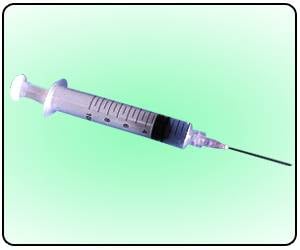Remdesivir has been approved for the treatment of COVID-19, but it may have adverse effects on the heart, particularly in older adults with underlying cardiovascular disease.
- Remdesivir is prescribed to COVID-19 patients with low oxygen saturation and has been shown to shorten the duration of recovery in hospitalized patients with lower respiratory tract infections
- Remdesivir has been linked to various cardiac side effects, including bradycardia, atrial fibrillation, and QT prolongation, and may cause mitochondrial dysfunction and sinoatrial node inhibition
- Bradycardia is the most common cardiac side effect of remdesivir and requires continuous cardiac monitoring during treatment, particularly in older adults with underlying cardiovascular disease
Why is Remdesivir Prescribed to COVID-19 Patients?
Remdesivir is prescribed to patients who have an oxygen saturation of less than 94%. It shortens the duration of recovery in COVID-19 hospitalized patients with lower respiratory tract infections.Remdesivir can Affect Heart Health
The study found that remdesivir causes a variety of cardiovascular effects, including hypotension, bradycardia, atrial fibrillation rhythm, QRS widening, prolonged QT interval, torsades de pointes, and cardiac arrest, and emphasized the importance of focusing on remdesivir-induced bradycardia in older people with underlying cardiovascular disease and use of beta-blockers.What is Bradycardia?
Bradycardia is a type of arrhythmia that occurs when the heart rate falls below 60 beats per minute. It can be caused by factors such as aging, ischemia, infarction, infiltrative illnesses, collagen vascular disease, myotonic muscular dystrophy, surgical trauma, familial and viral diseases, hypothyroidism, hypothermia, neurologic disorders, and electrolyte imbalances.Syncope, presyncope, transitory dizziness, weariness, dyspnea or shortness of breath on exertion, and indications of heart failure or cerebral hypoperfusion leading to the confusion are common symptoms of bradycardia.
What is the Most Common Side-Effect of Remdesivir?
The researchers discovered that bradycardia is the most common cardiac side effect caused by remdesivir. Remdesivir is also known to induce anemia, hepatotoxicity (increased liver enzymes), cutaneous rash, renal toxicity, and hypotension, as well as a range of cardiac side effects including bradycardia, atrial fibrillation, hypotension, and QT prolongation.According to the World Health Organization's Individual Case Safety Reports database, which included 2603 patients, bradycardia was the most common cardiac impact produced by Remdesivir.
How does Remdesivir Affect the Heart?
Remdesivir is an antiviral medication, however, it also inhibits human mitochondrial RNA polymerase. This reaction inhibits human mitochondria, resulting in mitochondrial malfunction. "This is a frequent mechanism for drug-induced cardiotoxicity and one of the likely processes for remdesivir-induced bradycardia," the researchers write.Another method by which remdesivir can cause bradycardia, according to the researchers, is its inhibition of the sinoatrial (SA) node. They discovered that remdesivir-induced bradycardia was most common in those over the age of 65. Bradycardia is diagnosed by a pulse rate of fewer than 60 beats per minute, which can be confirmed by a 12-point electrocardiogram (ECG).
"The University of Illinois Chicago Drug Information Group recommends a baseline ECG and heart rate for all patients before receiving remdesivir and continuous cardiac monitoring during treatment, especially among those with underlying cardiovascular disease, older adults, and those taking a beta-blocker," the researchers have said citing another study.
"If bradycardia persists, then additional management should include atropine 0.5 mg every 3 to 5 minutes and/or a dopamine infusion of 3 or 5 μg/kg/min. If the symptoms and heart rate of the patient does not improve, the patient is a candidate for a temporary pacemaker," they have said.
Source-Medindia
















